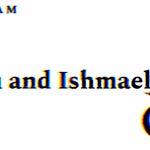In an era marked by economic, social, and emotional challenges, many turn to alcohol for temporary relief. However, excessive consumption often leads to harm, impairing individuals’ ability to contribute to a brighter future. This article explores an experimental combination of agave wine and kombucha, consumed to investigate whether it can produce a euphoric buzz while mitigating the negative effects of alcohol. These findings suggest a potential pathway for safer social drinking, though further scientific validation is required.
The proverb "if ever there was a time to drink, it's now" reflects the collective stress of modern times. Alcohol, while socially and culturally entrenched, often comes with risks, including dependency, health issues, and impaired decision-making. This experiment tests whether combining alcohol with a probiotic-rich beverage like kombucha can create a safer drinking experience.
Methods
A single-subject case study design was used. I consumed 1 part agave wine (12-15% ABV) followed by 2 parts kombucha (approximately 0.5% ABV), observing the physical and mental effects over four hours. Self-reported metrics included:
- Level of euphoria
- Clarity of thought
- Physical symptoms (e.g., nausea, dizziness, fatigue)
Hypothesis
Probiotics in kombucha may influence alcohol metabolism, potentially reducing its negative effects while allowing for a mild euphoric state. The dilution of the wine with kombucha may also reduce the overall alcohol load.
Results
1. Euphoria: A mild, pleasant buzz was achieved within 30 minutes of consumption, peaking around 90 minutes. The effects felt more sustained and balanced compared to drinking wine alone.
2. Clarity of Thought: Mental clarity was maintained throughout the experience, with no noticeable cognitive impairment.
3. Physical Symptoms: No significant dizziness, nausea, or fatigue was reported. A slight feeling of warmth and relaxation was noted.
4. Digestive Response: The kombucha appeared to mitigate common alcohol-related symptoms such as stomach discomfort or bloating.
The combination of agave wine and kombucha shows promise as a method for achieving a mild buzz without significant physical or cognitive side effects. While it is unlikely that the probiotics in kombucha "consume" alcohol in the bloodstream, they may contribute to gut health, reducing inflammation and promoting a more balanced bodily response to alcohol.
Limitations
This experiment was conducted on a single subject and lacks controlled variables or long-term data. Further research is necessary, involving larger sample sizes and biochemical analysis to validate these findings.
Conclusion
The agave wine and kombucha combination offers a potentially safer alternative for social drinking during trying times. By reducing the alcohol load and incorporating probiotic benefits, this experiment underscores the possibility of a more mindful drinking culture. However, moderation remains essential, and continued exploration is vital to refine and verify these findings.
Responsibility and Hope
While the sentiment to drink away one’s sorrows is understandable, it is crucial to remember the responsibility we have to ourselves and others. If relief is needed, it must not come at the cost of long-term harm. By exploring safer alternatives, we take small yet meaningful steps toward ensuring that even in hardship, we remain equipped to shape a better future.
Future Research
1. Analyze blood alcohol levels when consuming the combination versus alcohol alone.
2. Conduct a placebo-controlled study to evaluate subjective effects.
3. Explore other alcohol and kombucha pairings to optimize benefits.
This experiment is not just about finding a better way to drink; it is about caring for humanity, even in its moments of vulnerability. Through science, empathy, and responsibility, we can create paths to both relief and resilience.











